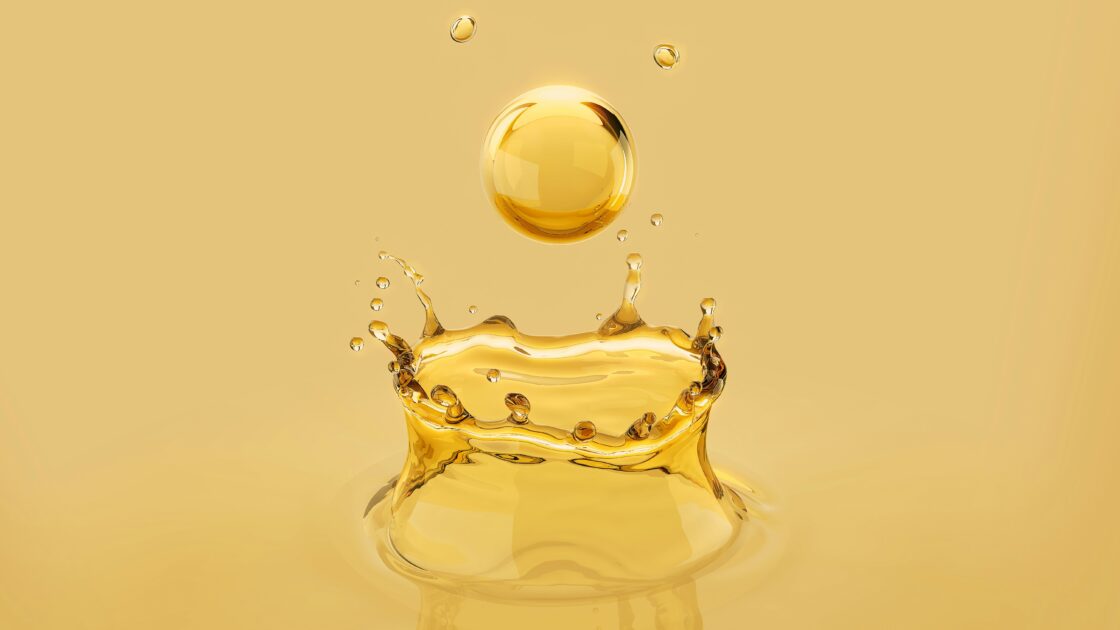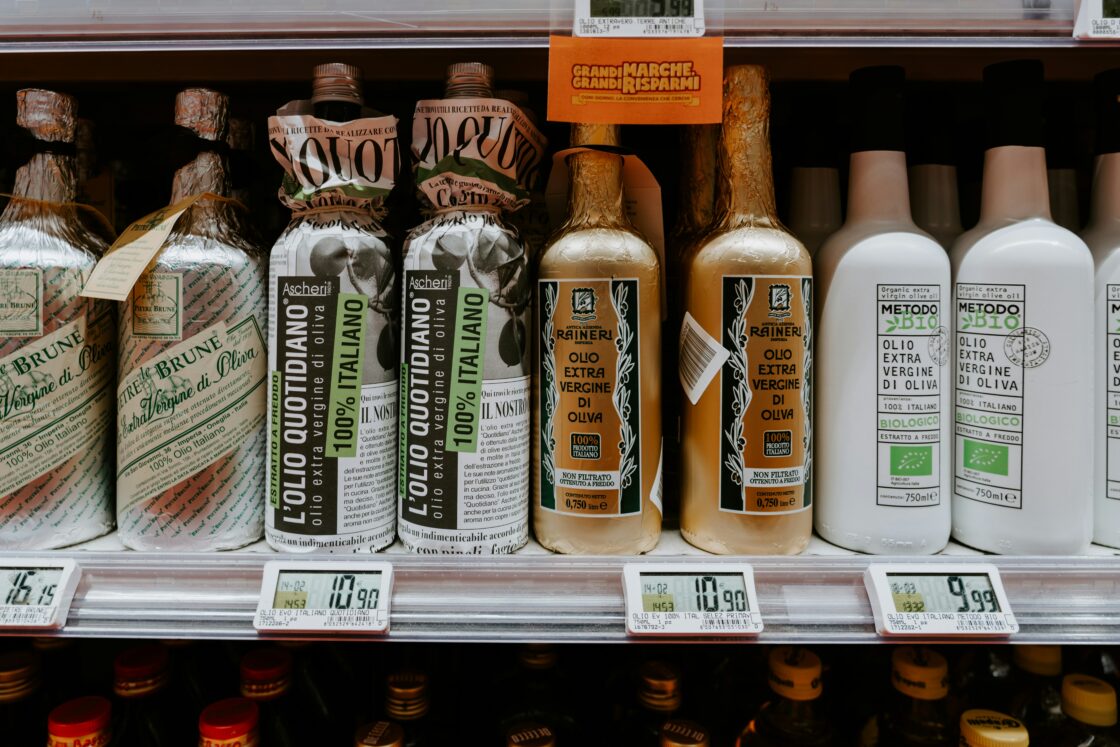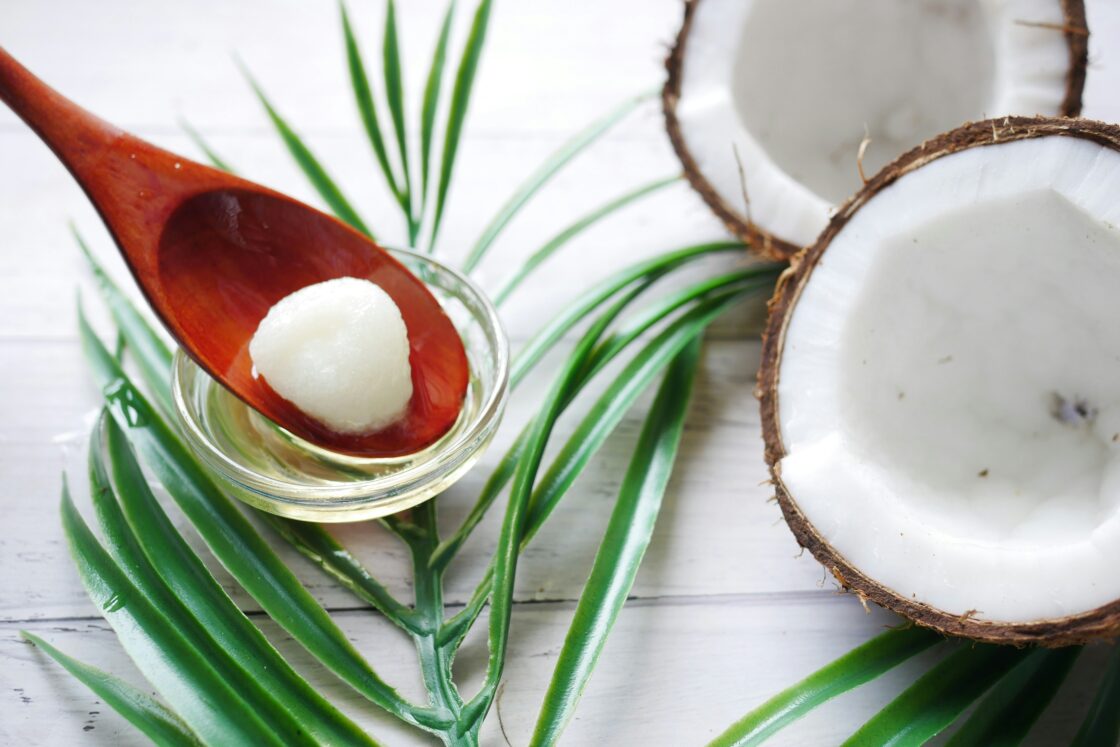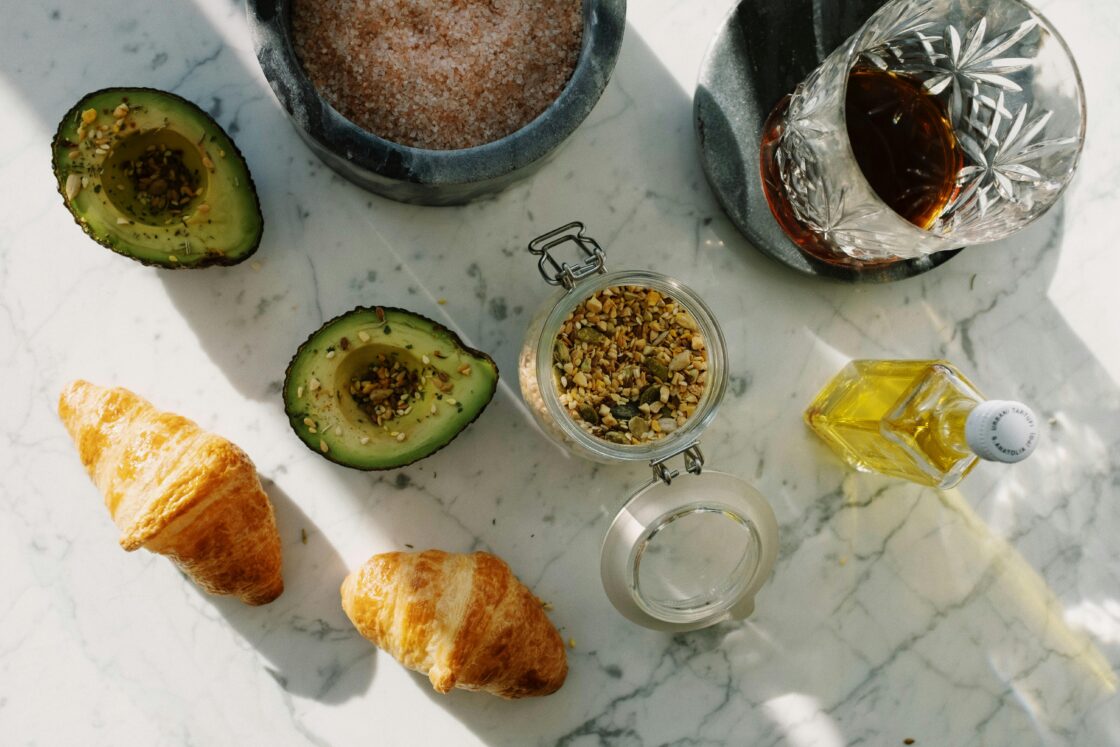
Butter was evil; now it’s a superfood. Consuming six small meals is best for our metabolism; no, wait, all of us have to attempt intermittent fasting. It’s not unusual for opinions on wellness to vary as rapidly because the wind, polarized by science and pseudoscience alike. And nowadays, there’s maybe no area of opinion extra divided than the world of seed oils. Some champion them as heart-healthy musts, others say they’re toxins we have to keep away from altogether. So which is it? Let’s dig into the reality to separate reality from fiction.
What Are Seed Oils and Vegetable Oils (And What’s the Downside With Them?)
Seed oils are a kind of vegetable oil that will get extracted from the seeds of sure crops. Widespread seed oils embody rapeseed (aka canola), corn, soy, sunflower, and grapeseed.
All seed oils are vegetable oils, however not all vegetable oils are seed oils. Vegetable oils might be derived from quite a lot of plant elements, like nuts and fruits (not simply the plant seeds). Widespread vegetable oils that aren’t seed oils embody olive, coconut, avocado, and palm.
Whereas most sources of dietary fats boast a mixture of saturated, monounsaturated, and polyunsaturated fat, vegetable oils and seed oils are usually significantly excessive in monounsaturated fat (MUFAs) and polyunsaturated fat (PUFAs).
The Argument In opposition to Vegetable and Seed Oils

Whereas science has detailed some well being advantages of MUFAs, like a diminished danger of heart problems1, many consultants are cautious of seed oils’ comparatively excessive ratio of omega-6 to polyunsaturated omega-3 fatty acids – particularly contemplating the common American eating regimen is already low in omega-3s and excessive in omega-6s as a result of an overreliance on processed meals.
Some consultants consider this imbalance of omega-6 fatty acids contributes to the inflammatory properties of seed oils. Dr. Joseph Mercola, Board Licensed Household Drugs Osteopathic Doctor (DO) and Writer of Your Information to Mobile Well being, recommends eradicating them from our diets as a lot as potential, opting as a substitute for “evolutionarily acceptable fat” like grass-fed butter, ghee, or beef tallow.
“These fat are extra secure at excessive temperatures, help your mobile well being, and supply important fat-soluble nutritional vitamins,” says Mercola. “In the event you completely want an oil, select these which can be naturally low in [linoleic acid] and unadulterated, comparable to further virgin olive oil, however be cautious of potential adulteration and make sure you’re sourcing high-quality, pure merchandise.”
The Argument for Vegetable and Seed Oils
Whereas some are agency of their campaign towards vegetable and seed oils, it stays a controversial matter even amongst professionals, a few of whom consider the demonization of those oils is misplaced. Ashley Reaver is a Registered Dietitian, lecturer at UC Berkeley, and the writer of the forthcoming Easy Meal Options for Excessive Ldl cholesterol. She’s skeptical of the vitriol at the moment being hurled at oils like olive oil and avocado oil.
“The concern of seed oils began from a viral video, not from any new scientific analysis or proof suggesting that they need to be prevented in any respect prices,” she mentioned. “The entire scientific literature performed on human well being factors to seed oils having a impartial or helpful impression on human well being, particularly after they exchange animal fat.”
Busting 5 Vegetable and Seed Oil Myths

“The concern of seed oils began from a viral video, not from any new scientific analysis or proof suggesting that they need to be prevented in any respect prices.”
Ashley Reaver, Registered Dietitian and UC Berkeley lecturer
The purported inflammatory negative effects of seed oils are solely the primary of many myths we’ve been led to consider about these grocery retailer staples. So what’s the reality? We’re so glad you requested.
Fantasy #1: Seed oils trigger continual illness
These within the anti-seed oils camp argue that seed oils trigger degenerative ailments by means of irritation. The speculation that seed oils are inflammatory stems from their excessive focus of linoleic acid, an omega-6 PUFA that Mercola refers to as “probably the most pervasive mitochondrial toxin in our trendy atmosphere.”
“A considerable physique of epidemiological proof helps that [linoleic acid] is a major driver behind the alarming rise in continual degenerative ailments,” Mercola says, linking it to to “a cascade of detrimental results, together with elevated oxidative stress, systemic irritation, compromised mobile vitality manufacturing, and dysbiosis of your intestine microbiome.”
However not everyone seems to be as sure as Mercola relating to the risks of linoleic acid. A 2015 examine within the Journal of the American School of Cardiology discovered that greater intakes of polyunsaturated fatty acids had been “considerably related” with decrease danger of cardiovascular and coronary heart illness, and a 2017 meta-analysis of randomized management trials discovered that linoleic acid doesn’t have a major impact on irritation2. Extra lately, 2023 analysis within the Worldwide Journal of Molecular Sciences confirmed an affiliation between a better consumption of omega-6 fatty acids and improved cardiovascular well being and glucose metabolism3.
For Reaver, the preclusion towards seed oils is way from unanimous in vitamin circles. In actual fact, she mentioned, “you’ll be arduous pressed to seek out vitamin professionals or vitamin researchers cautioning towards the consumption of seed oils. There are numerous elements of vitamin that really will impression long-term well being and the event of continual illness,” she mentioned. “Seed oils usually are not considered one of them.”
In response to Reaver and plenty of different vitamin consultants, the current demonization of those oils “is a distraction away from the issues that actually matter like consuming sufficient dietary fiber (90% of Individuals don’t), consuming sufficient greens (60% of Individuals don’t), limiting including sugar (50% of Individuals don’t), and consuming inside your physique’s calorie wants.”
Reaver went on to say that the true hazard of seed oils isn’t the oils themselves, however the commonest manner by which they’re consumed: ultra-processed meals. “The elimination of ultra-processed meals can enhance general well being and should result in improved digestion,” she mentioned, “but it surely can’t be singularly attributed to the discount in seed oil consumption.”
Fantasy #2: Cooking with olive oil is harmful

We’ve been advised repeatedly to order our olive oil for drizzling, a advice made on the idea of cooking oil smoke factors. A fats’s smoke level is the temperature at which it begins to emit smoke and break down, releasing inflammatory free radicals. Whereas fat like peanut oil or clarified butter have pretty excessive smoke factors (round 450 ºF), olive oil begins to smoke at simply 325 ºF. As a consequence of its decrease smoke level, we’ve been advised for years to make use of it chilly.However world wide, individuals have lengthy been cooking — and even frying — with olive oil. From Spanish croquettes to Tunisian vegetable kafteji, olive oil is pervasive as a high-temperature cooking oil.
“It’s unlikely that oil is heated to a excessive sufficient temperature for an extended sufficient time to trigger severe rancidity that will be deleterious for well being.”
Ashley Reaver
For Reaver, the concept we are able to’t cook dinner with olive oil got here not from flawed science, however from the truth that we’ve been overestimating simply how excessive our cooking temperatures are. “Oils which can be excessive in unsaturated fat, like olive oil, are inclined to rancidity when cooked at excessive temperatures,” she says. “Nevertheless, it’s unlikely that oil is heated to a excessive sufficient temperature for an extended sufficient time to trigger severe rancidity that will be deleterious for well being.”
Certainly, except for French fries, which take their second oil tub at round 400 ºF, most meals are fried at someplace between 350 ºF and 375 ºF. And most extra-virgin olive oils are completely blissful at that temperature. One examine even confirmed that extra-virgin olive oil heated to 350 ºF for a number of hours confirmed no signal of oxidation4.
Even the professionals on the Culinary Institute of America have modified their tune on cooking with olive oil. In a current white paper on the topic, they wrote that “you may completely fry with olive oil with nice outcomes.”5
Fantasy #3: Coconut oil is a weight-loss superfood
Very like kale and açai berries, coconut oil was a flash-in-the-pan superfood of epic proportions. As soon as attributed with a spread of near-magical qualities, from curing Alzheimer’s illness to reducing ldl cholesterol and contributing to weight reduction, coconut oil was the poster little one of wholesome cooking fat for a number of years.

If coconut oil has drifted into the shadows in recent times, it’s as a result of a lot of its purported well being advantages have been debunked. Research didn’t discover a hyperlink between coconut oil and improved Alzheimer’s signs, and the Alzheimer’s Society wrote that “there may be at the moment a scarcity of proof to point out that coconut oil performs a job in stopping or curing dementia or its signs.”6 And a 2022 analysis overview discovered that, opposite to common perception, coconut oil had a bent to elevate unhealthy levels of cholesterol7.
As for coconut oil’s supposed results on weight reduction, this all got here all the way down to its medium-chain triglycerides (MCTs). Pure MCTs have been discovered to decrease starvation indicators and improve emotions of fullness, which led consultants to suggest them for weight reduction. However a 2017 randomized managed trial in Physiology & Habits discovered that the identical results couldn’t be prolonged to coconut oil, whose fats content material is simply made up of 10 p.c MCTs8. “The remaining fat are primarily long-chain triglycerides similar to nearly all of different fat,” defined Reaver.
So is coconut oil good for you, actually? Reaver is considerably impartial on the oil, saying we must always keep away from overuse. “Coconut oil itself doesn’t have many distinctive components as an oil apart from its distinctive taste,” she added. “Whereas it’s completely fantastic to eat sometimes, it shouldn’t be the first cooking fats, and I’m blissful to see it out of the highlight.”
Fantasy #4: Grocery store avocado oil is all the time a wholesome alternative
Avocados are a wonderful supply of heart-healthy monounsaturated fat, and compounded with their richness in fiber, they’re well-deserving of superfood standing. And as you may count on, a few of these advantages additionally translate to avocado oil.
A 2018 examine in Vitamin discovered that avocado oil may cut back the results of hypertension on the kidneys9, and a 2005 examine in The Journal of Vitamin discovered that it elevated the absorption of wholesome carotenoids in different meals like salad and salsa10. A 2019 examine within the Worldwide Journal of Rheumatic Ailments additionally indicated that avocado oil might be helpful for individuals with hip and knee osteoarthritis11.

However whereas avocado oil definitely seems like a sensible choice on paper, in observe, issues aren’t fairly what they appear. “Many avocado oils out there are adulterated with cheaper, high-LA seed oils, negating their purported well being benefits and exposing you to the identical dangerous ranges of linoleic acid present in different seed oils,” mentioned Mercola.
Certainly, one 2020 examine from UC Davis discovered {that a} whopping 82 p.c of the “avocado oil” available on the market was both adulterated or rancid12. In the event you resolve to purchase avocado oil, be certain you get it from a reliable supply, and purchase it in small portions as a way to use it earlier than it goes off.
Fantasy #5: Flaxseed oil is sweet on your hormones
Flaxseed oil has been touted for its hormone-balancing properties due to the presence of lignans, which comprise phytoestrogens. These plant-based estrogens had been as soon as maligned as endocrine disruptors13, although newer analysis has discovered they might enhance menopausal signs14 and will even cut back the chance of growing breast most cancers15.
Many had been fast to increase the advantages of lignans to flaxseed oil. Certainly, a 2020 examine printed in Veterinary Drugs and Science appeared promising, displaying that flaxseed oil might mimic the results of estrogen in ovariectomized rats16. The examine authors concluded that there was a possible for utilizing flaxseed oil as a substitute for hormone substitute remedy (HRT). However a 2004 examine in The American Journal of Medical Vitamin confirmed that whereas flaxseed dietary supplements modified urinary excretion of estrogen in postmenopausal ladies, they didn’t affect bone cell metabolism17. Equally, a 2023 examine in Frontiers in Vitamin discovered that flaxseed supplementation had no function within the intercourse hormone profile of adults18.
“The few research we’ve present there isn’t a important impression on intercourse hormones primarily based on consumption of flaxseeds or flaxseed oil,” mentioned Reaver. And whereas she famous that flax is without doubt one of the solely non-marine sources of omega-3 fatty acids, together with chia seeds and walnuts, flaxseed oil is “significantly inclined to rancidity as a result of its chemical construction (a excessive variety of double bonds), which additionally provides it a low smoke level.” Because of this, she cautioned, flaxseed oil ought to solely be used as a garnish or dressing and never for cooking.
General, flaxseed oil must be appreciated for its nutty taste reasonably than any supposed hyperlinks to improved hormone well being.
Separating Vegetable and Seed Oil Information from Fiction
So in any case that, is vegetable oil wholesome? Are seed oils really unhealthy? Effectively, as you may see, it’s a bit sophisticated, and it varies from oil to grease. However general, there’s no motive to demonize any single seed oil — and equally, there’s no have to elevate any single vegetable oil to superfood standing.
Vegetable and seed oils are an inexpensive different for different cooking fat like butter, however they need to positively be prevented after they come within the type of ultra-processed meals. As a rule of thumb, you’re in all probability higher off working in the direction of a balanced eating regimen wealthy in fiber and entire meals than making a severe effort to remove seed oils.
Sources:
- https://pmc.ncbi.nlm.nih.gov/articles/PMC4424766/
- https://pubmed.ncbi.nlm.nih.gov/28752873/
- https://www.ncbi.nlm.nih.gov/pmc/articles/PMC10003459/
- https://www.researchgate.web/publication/5910647_How_Heating_Affects_Extra_Virgin_Olive_Oil_Quality_Indexes_and_Chemical_Composition
- https://static1.squarespace.com/static/5c5482a394d71a98976ca5a6/t/5d13931a5e3ccf00013df68e/1561563931589/CIA+Olive+Oil+and+the+Plant-Ahead+Kitchen.pdf
- https://pubmed.ncbi.nlm.nih.gov/37980665/
- https://pmc.ncbi.nlm.nih.gov/articles/PMC9132222/
- https://pubmed.ncbi.nlm.nih.gov/28689741/
- https://pubmed.ncbi.nlm.nih.gov/29753173/
- https://pubmed.ncbi.nlm.nih.gov/15735074/
- https://pubmed.ncbi.nlm.nih.gov/31328413/
- https://www.ucdavis.edu/meals/information/study-finds-82-percent-avocado-oil-rancid-or-mixed-other-oils
- https://pmc.ncbi.nlm.nih.gov/articles/PMC3074428/
- https://pmc.ncbi.nlm.nih.gov/articles/PMC7759898/
- https://www.sciencedirect.com/science/article/pii/S0022316622098017
- https://pmc.ncbi.nlm.nih.gov/articles/PMC8025639/
- https://www.sciencedirect.com/science/article/pii/S0002916522038308
- https://pmc.ncbi.nlm.nih.gov/articles/PMC10623424/

